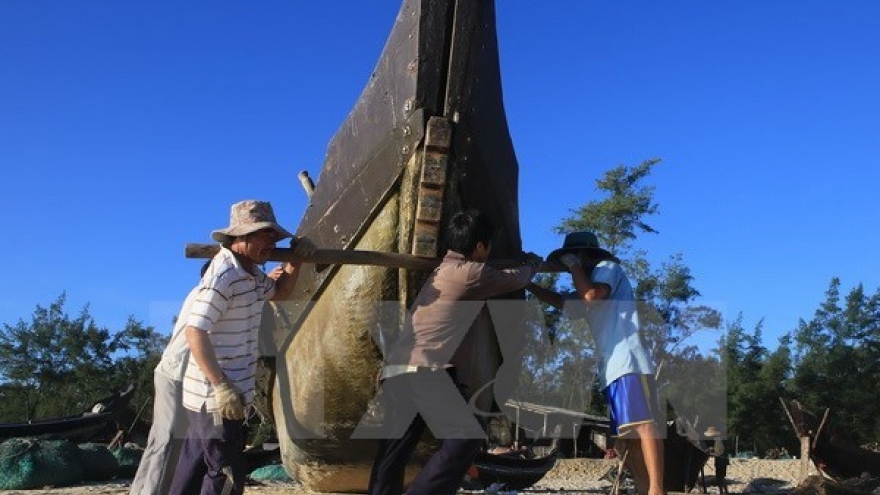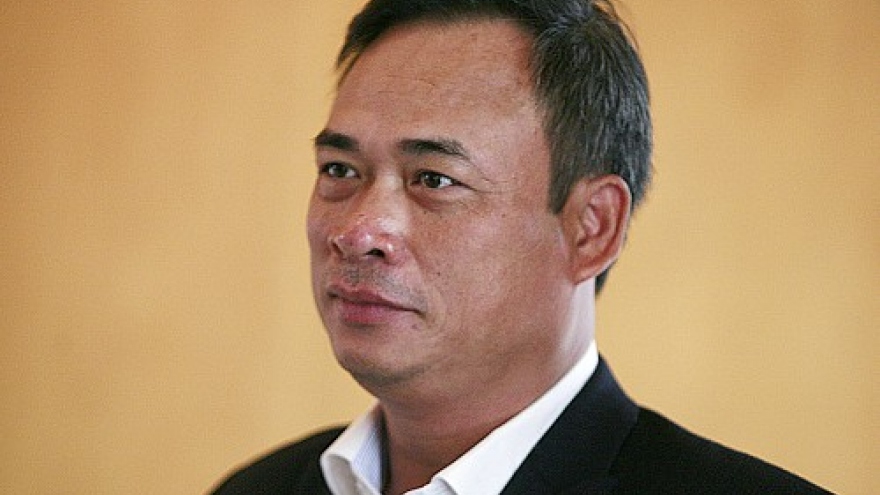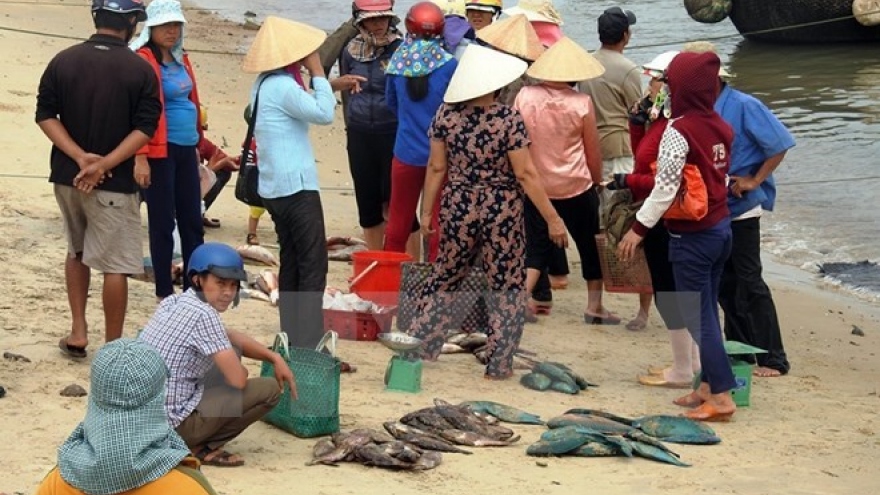Formosa exceeds emission limit after raising capacity for evaluation
Recent reports of emissions exceeding the permissible amount at Formosa steel mills in north-central Ha Tinh Province were the result of a raised capacity to evaluate the company’s emission treatment system, Vietnam’s Ministry of Natural Resources and Environment (MONRE) has said.
The ministry gave the explanation on November 25 following rumors that the Taiwanese steel business was once again bringing harm to Vietnam’s environment.
Hung Nghiep Formosa Ha Tinh Steel Co. Ltd., or Formosa for short, is the Vietnamese steel business of Taiwan’s Formosa Plastics Group.
Last June, the firm’s top executives admitted wrongdoing and pledged a hefty monetary compensation of US$500 million after wastewater from its factories was found responsible for mass fish deaths along the central coast of Vietnam two months earlier.
 |
| A Formosa steel plant in Ha Tinh Province, Vietnam |
Formosa has been allowed to continue doing business in Vietnam regardless, though with increased monitoring and inspections by local authorities to ensure such incidents never repeat.
In a statement released on November 25, MONRE acknowledged that some readings on Formosa’s emissions had exceeded the permissible amount recently.
Specifically, the sulfur dioxide (SO2) and nitrogen oxides (NOx) levels in Formosa’s emissions were above the standards at some points.
However, such incidents were due to the company raising its capacity above the usual level to inspect and evaluate the emission treatment system.
According to the ministry, responsible authorities have kept a close watch on the company’s operations and emissions since the scandal last year, and so far have found no violation of environmental standards.
A US$100 million SO2 and NOx treatment system is being installed at its steel plants, with the completion date scheduled for June 2019.
In the meantime, the company is obliged to use clean fuel to power its mills to make sure no air contaminants are produced and emitted to the environment.
The ministry also dismissed claims that it was drafting a new set of environmental standards to legalize Formosa’s emissions.



